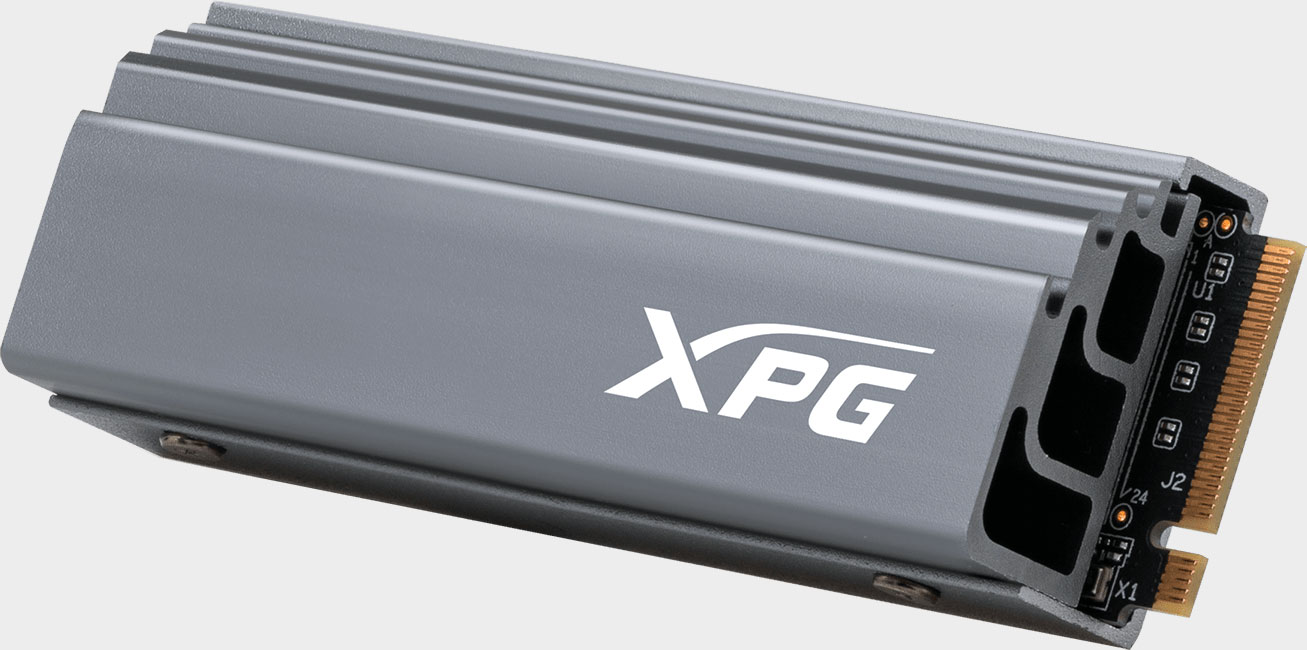Adata launches one of the fastest M.2 SSDs around
The new XPG Gammix S70 is rated to read data at 7,400MB/s, which is faster than any other consumer M.2 SSD.

Keep up to date with the most important stories and the best deals, as picked by the PC Gamer team.
You are now subscribed
Your newsletter sign-up was successful
Want to add more newsletters?

Every Friday
GamesRadar+
Your weekly update on everything you could ever want to know about the games you already love, games we know you're going to love in the near future, and tales from the communities that surround them.

Every Thursday
GTA 6 O'clock
Our special GTA 6 newsletter, with breaking news, insider info, and rumor analysis from the award-winning GTA 6 O'clock experts.

Every Friday
Knowledge
From the creators of Edge: A weekly videogame industry newsletter with analysis from expert writers, guidance from professionals, and insight into what's on the horizon.

Every Thursday
The Setup
Hardware nerds unite, sign up to our free tech newsletter for a weekly digest of the hottest new tech, the latest gadgets on the test bench, and much more.

Every Wednesday
Switch 2 Spotlight
Sign up to our new Switch 2 newsletter, where we bring you the latest talking points on Nintendo's new console each week, bring you up to date on the news, and recommend what games to play.

Every Saturday
The Watchlist
Subscribe for a weekly digest of the movie and TV news that matters, direct to your inbox. From first-look trailers, interviews, reviews and explainers, we've got you covered.

Once a month
SFX
Get sneak previews, exclusive competitions and details of special events each month!
A few weeks ago I had declared that the next-gen SSD wars had begun, and Sabrent was winning, having launched the fastest drive on the planet. Well, Adata just pulled a 'hold my beer' moment and has positioned its new XPG Gammix S70 as the drive to beat, at least for reads.
The Gammix S70 is another in a steadily growing line of PCI Express 4.0 models. Initially, PCIe 4.0 SSDs boasted read and write speeds in the neighborhood of 5,000MB/s (or 5GB/s, if you prefer). More recently, however, even speedier drives have emerged, though none faster than the Gammix S70—it is ready to rip through sequential reads at up to 7,400MB/s and sequential writes at 6,400MB/s.
For reading data, the Gammix S70 is 400MB/s faster than both Sabrent's Rocket 4 and Samsung's 980 Pro, each of which are rated at 7,000MB/s. However, those drives have the Gammix S70 beat on write speeds. Here's how the three drives compare:
- Adata XPG Gammix S70—7,400MB/s reads, 6,400MB/s writes
- Sabrent Rocket 4—7,000MB/s reads, 6,850MB/s writes
- Samsung 980 Pro—7,000MB/s reads, 5,000MB/s writes
In the speed tier these drives are competing in, a few hundred MB/s is really just splitting hairs—all three are incredibly fast on paper.
As of this moment, none of this matters a whole lot for gaming. That's because you will see virtually no difference between even the fastest SATA 6Gbps SSDs (around 580MB/s) and these PCIe 4.0 models. But that could change in the not-too-distant future. How so?
Both the PlayStation 5 and Xbox Series X have finally adopted SSD storage, and it is of the PCIe 4.0 variety. Microsoft and Sony have been hyping new storage architectures that could virtually eliminate load times and enable more expansive game worlds.

Best CPU for gaming: the top chips from Intel and AMD
Best graphics card: your perfect pixel-pusher awaits
Best SSD for gaming: get into the game ahead of the rest
To facilitate the same potential benefits on PC, Microsoft announced this month that it is bringing a DirectStorage API to the DirectX family for Windows PCs. This API is based on the same Velocity architecture in the Xbox Series X that makes better use of fast storage.
Keep up to date with the most important stories and the best deals, as picked by the PC Gamer team.
Whether for gaming or shuffling around large files, there is still the caveat of needing a PCI 4.0 motherboard to take full advantage of these speedy SSDs. That means building a Ryzen PC around AMD's X570 or B550 chipset. Intel does not yet support PCIe 4.0 on the desktop (though Rocket Lake is rumored to), nor does AMD's entry-level A520 chipset.
As for the Gammix S70, it will be offered in 2TB and 1TB capacities. Adata has not yet announced pricing or a release date, only that these drives will be backed by a five-year warranty.
Paul has been playing PC games and raking his knuckles on computer hardware since the Commodore 64. He does not have any tattoos, but thinks it would be cool to get one that reads LOAD"*",8,1. In his off time, he rides motorcycles and wrestles alligators (only one of those is true).


